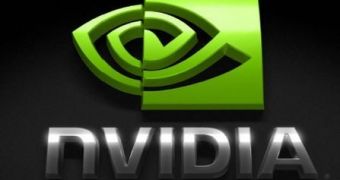Intel's long-awaited G45 chipset with integrated hardware decoding technology has just tripped and fell over a hardware design flaw and it seems that it won't be able to make it in due time with all the announced features. Just as Nvidia's engineers started popping champaign bottles to celebrate its Arch-rival's failure, users started complaining about data corruption in its Nvidia nForce 790i-series core-logic.
The graphics expert has just confirmed that systems based on the nForce 790i-series chipset may cause data corruption, especially when the CPU and memory bus are overclocked. The issue is not new at all, given the fact that there are previous reports claiming the same behavior in older chipset offerings from Nvidia.
Hard-disk data corruption especially occurs when computer users manually overclock the processor system bus (PSB) and memory clock-speeds on systems equipped with Nvidia's nForce 790i chipset.
"Nvidia has received reports of data corruption when using certain high speed memory and overclocking the front side bus. Our engineers are currently investigating this issue and as soon as we have more information, we will provide an update to this knowledge base article," a statement by Nvidia in its technical support forums reads.
However, despite the alarming frequency of this "side-effect", neither Nvidia nor its motherboard manufacturing partners have unveiled the reasons that trigger the issue. Driver updates also do not fix the glitch, and all the signs point to yet another hardware design fault, just like in Intel's G45.
The nForce 790i Ultra SLI core-logic is designed to work with Intel's Core 2 chips and supports FSB speeds of up to 1600MHz, that can be easily bent via overclocking. The chipset is designed especially for overclocking enthusiasts and is a business in itself, given the fact that it sells for about $300 (chipset alone).

 14 DAY TRIAL //
14 DAY TRIAL //